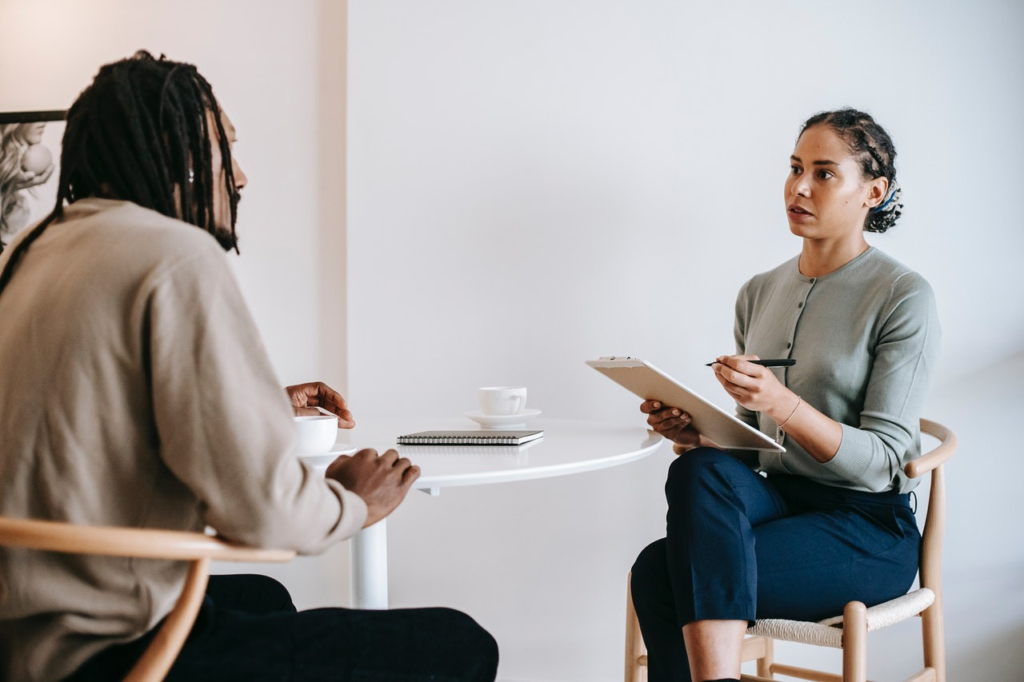Social anxiety is a common and often debilitating condition that affects millions of people worldwide. It can make social interactions challenging and lead to feelings of self-doubt and fear. However, the good news is that social anxiety is manageable, and you can develop strategies to overcome it. In this blog post, we’ll explore practical tips and techniques on How To Deal With Social Anxiety, this will help you deal with social anxiety and regain your confidence in social situations.
Understanding Social Anxiety

Before we delve into strategies for coping with social anxiety, it’s crucial to understand what it is. Social anxiety, also known as social phobia, is an intense fear of being judged, embarrassed, or negatively evaluated in social situations. It can manifest in various ways, such as nervousness, excessive sweating, trembling, or a racing heart.
1. Self-Awareness and Acceptance

The first step in overcoming social anxiety is self-awareness and acceptance. Understand that social anxiety is a common condition, and you’re not alone in experiencing it. Recognize your triggers and acknowledge that it’s okay to feel anxious sometimes. Self-acceptance is the foundation upon which you can build your confidence.
2. Challenge Negative Thoughts

Social anxiety often arises from negative self-talk and irrational thoughts. Challenge these thoughts by asking yourself questions like, “Is this thought based on facts or assumptions?” Try to replace negative thoughts with more realistic and positive ones. For instance, instead of thinking, “I’ll embarrass myself,” tell yourself, “I can handle this situation, just like I have before.”
3. Gradual Exposure

Facing your fears gradually is an effective way to desensitize yourself to social situations. Start with smaller, less intimidating situations and gradually work your way up to more challenging ones. This gradual exposure helps build confidence and reduces anxiety over time.
4. Breathing and Relaxation Techniques

Deep breathing exercises and relaxation techniques can help calm your nerves in stressful social situations. Practice deep, slow breaths to reduce physical symptoms of anxiety. You can also explore mindfulness meditation or progressive muscle relaxation to ease tension.
5. Prepare and Rehearse

Preparation can boost your confidence. Before social events, prepare conversation topics or questions to ask others. Rehearse what you want to say in front of a mirror or with a trusted friend. The more prepared you are, the less anxiety you’ll feel.
6. Focus on the Present

Social anxiety often stems from worrying about future events or dwelling on past embarrassments. Practice mindfulness by staying focused on the present moment. Ground yourself by paying attention to your surroundings and sensations. This can help reduce anxiety and increase your comfort in social settings.
7. Seek Professional Help

If social anxiety significantly impacts your life, consider seeking professional help. Therapists, counselors, and psychiatrists can provide effective treatments such as cognitive-behavioral therapy (CBT), exposure therapy, or medication if necessary.
8. Join Support Groups

Support groups provide a safe space to connect with others who understand what you’re going through. Sharing experiences and strategies with people who have faced similar challenges can be incredibly empowering.
Conclusion
Dealing with social anxiety is a journey that requires patience and self-compassion. Remember that progress may be gradual, but every small step counts. By developing self-awareness, challenging negative thoughts, gradually exposing yourself to social situations, and seeking support when needed, you can conquer social anxiety and regain your confidence. Embrace the process of self-improvement, and with time, you’ll find that social interactions become more enjoyable and less intimidating.
Read More
- Free Online Courses Available in French
- Free online courses for beginners
- How To Learn Web Developing Online For Free


